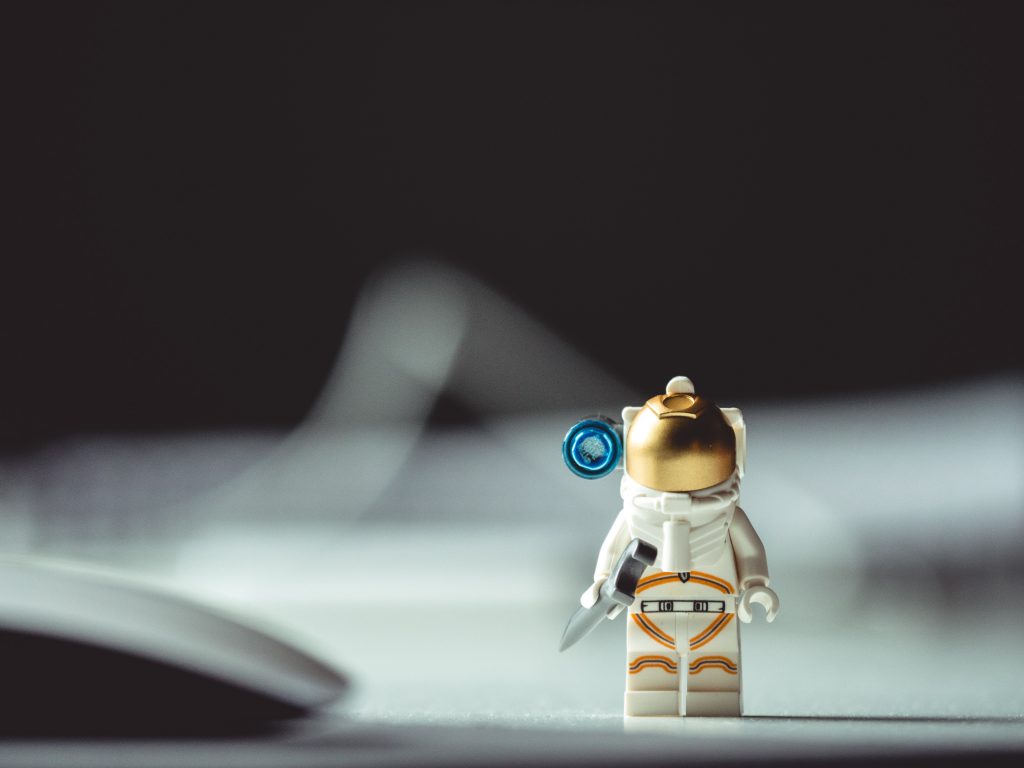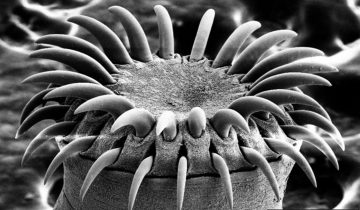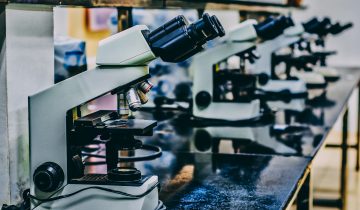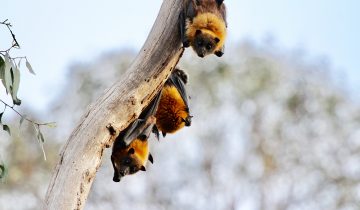Last year, results from the landmark NASA’s “Twin Study” were published in the scientific journal Science (April 12, 2019). The study was carried out in 2015/2016 to understand the health impact of long-duration spaceflight, and centered around astronauts Scott and Mark Kelly, who are identical twins. One of the twins, Scott Kelly, was monitored before, during, and after a 1-year mission onboard the International Space Station, whereas his twin, Mark Kelly, stayed on Earth and served as a genetically matched control subject. The study results help to understand how the human body responds to the spaceflight environment, and how to maintain crew health during human expeditions to the Moon and Mars.
The published paper (The NASA Twins Study: A multidimensional analysis of a year-long human spaceflight) details the integrated work of 10 research teams on the effects of the spaceflight environment on human health and performance, physiology, and cellular and molecular processes. The paper points out that “The space environment is made harsh and challenging by multiple factors, including confinement, isolation, and exposure to environmental stressors such as microgravity, radiation, and noise.” Therefore, during and after the year in space, the researchers collected physiological, telomeric, transcriptomic, epigenetic, proteomic, metabolomic, immune, microbiomic, cardiovascular, vision-related, and cognitive data. The researchers observed significant changes in multiple data types in association with the spaceflight period. However, most observed changes eventually returned to the preflight state, showing the human body’s resilience.
Jennifer Fogarty, chief scientist of the Human Research Program at NASA’s Johnson Space Center in Houston, said: “A number of physiological and cellular changes take place during spaceflight. We have only scratched the surface of knowledge about the body in space. The Twins Study gave us the first integrated molecular view into genetic changes, and demonstrated how a human body adapts and remains robust and resilient even after spending nearly a year aboard the International Space Station. The data captured from integrated investigations like the NASA Twins Study will be explored for years to come.”
The researchers found changes in telomere length, gene regulation measured in both epigenetic and transcriptional data, gut microbiome composition, body weight, carotid artery dimensions, subfoveal choroidal thickness and peripapillary total retinal thickness, and serum metabolites. Cognitive performance was significantly affected by the stress of returning to Earth. For a few measures, persistent changes were observed even after 6 months on Earth, including the expression levels of some genes, increased DNA damage from chromosomal inversions, increased numbers of short telomeres, and attenuated cognitive function.
What about the immune system? The researchers found that many immune-related pathways were significantly changed inflight across all cell types. Adaptive immune system, innate immune response, and natural killer cell-mediated immunity were all affected. Notably, inflammatory cytokines and immune response gene networks were significantly influenced by the stress of returning to Earth. However, the researchers also found that the flu vaccine administered in space worked exactly as it does on Earth. A fully functioning immune system during long-duration space missions is critical to protecting astronaut health from opportunistic microbes in the spacecraft environment.
In the published paper, the researchers conclude that astronauts conducting exploration-class missions could experience risks from mitochondrial dysfunction, immunological stress, vascular changes and fluid shifts, cognitive performance decline, as well as alterations in telomere length, gene regulation, and genome integrity. However, the researchers point out that given the limitations related to the analysis of a single spaceflight individual, further studies are needed, including studies of additional astronauts on long-duration (≥12 month) missions.





The blogpost does a great job at describing the resilience of the human immune system based on the NASA study conducted on identical twins. It was observed in the study that the subject’s immune system experienced multiple changes such as changes in inflammatory cytokines and immune response gene networks when returning back to Earth from Space due to immunological stress. I wanted to learn more about specific changes occurring in our immune system during long-duration space flight. I came across an article, Stress Related Shift Toward Inflammaging in Cosmonauts After Long-Duration Space Flight, published on 19 Feb 2019. The article discusses a study that focused on 12 cosmonauts experiencing more than 140 days of space flight. The study found that there was an increase in white blood cells while in flight; Neutrophils, monocytes, and B cells increased by 50%. After returning to Earth, NK cells dropped by 60% ( Buchheim et al., 2019). Low levels of helper T cells were also observed after landing, however these levels returned to normal after one month of being on Earth. Cytokines that were abundant while in flight reduced to normal levels after landing. Also, a shift from cytotoxic T cells to memory T cells was observed ( Buchheim et al., 2019). The study focused on how specific factors and cells of the immune system are affected by space flight, as well as how these change once returning back to Earth. Similar to the blogpost, the article stated that more studies would need to be conducted to fully understand the resilience of the human immune system after space flight.
Reference:
https://www.ncbi.nlm.nih.gov/pmc/articles/PMC6401618/
APA Citation:
Buchheim, J. I., Matzel, S., Rykova, M., Vassilieva, G., Ponomarev, S., Nichiporuk, I., … & Schelling, G. (2019). Stress related shift toward inflammaging in cosmonauts after long-duration space flight. Frontiers in physiology, 10.
Prior to reading this article, I wouldn’t have thought that human bodies would experience such immunological changes just by going into space, although after reading the article, I think it makes a lot of sense. The article left me wanting more specific details on exactly what changes were observed. I found your comment interesting because it specified on some of hematological space findings. While the change in white blood cell content changed drastically, I’m now curious about the red blood cell content. It would only make sense that if the immune cells are affected, that the oxygen cells would be too, since this is space were talking about.
I found an article detailing a hematological assessment done on 31 astronauts during a 6-month space voyage. This article focuses on the red blood cell changes as well as the plasma cell changes. It was found that around hour 48 of space travel there is an elevation in red blood cells and hemoglobin as well as a 17% decrease in plasma immediately after launch. Such increase in red blood cell mass is referred to as acute plethora, which is believed to be a result of the redistribution of fluids upon entering microgravity, which influences hematologic parameters. In the absence of gravity, there’s an immediate shift of bodily fluids towards the head. Though these findings on earth may be concerning, but in space, it is normal. This is just another example of how truly amazing and adaptable the human body is.
This blog post provided information that was unknown to me. I believe that studying the immune system in space is important to explore to get a more in-depth understanding of what human bodies can handle. I also just thought about how it was cool that they were able to use one twin as a control and the other one as the test. It was mentioned in your post that the cosmonauts in the article you found, experienced an increase in white blood cell (WBC) count. That fact stood out to me because WBCs are vital to our immune system. They play a significant role in defending the body against foreign invaders. With that, that made me question how an increase in WBC count can affect the body? Would it benefit the immune system by providing more defense against infections? In my research, I found that an increase in WBCs isn’t necessarily beneficial. In the article, they discuss leukocytosis, which is an increase in WBC. Leukocytosis can occur for several reasons, and WBC counts tend to be higher or lower in certain groups of people. For example, the article states babies have higher WBC counts, and African Americans have a lower WBC. However, an extremely high WBC can result in acute leukemia or other health issues. So, this made me wonder, can a WBC count get to an alarming number in space that can trigger different health problems, such as leukemia? Also, how much fluctuation in WBC can the immune
system withstand in space. Overall, I think your comment brings up great information that can help further our knowledge of the immune system in space.
Reference:
https://www.ncbi.nlm.nih.gov/pubmed/24750674
Chabot‐Richards, D.S. and George, T.I. (2014), Leukocytosis. Int. Jnl. Lab. Hem., 36: 279-288. doi:10.1111/ijlh.12212
Before reading this post, I had no idea that the immune system is significantly impacted by space flight. After reading this post, I learned that it not only affects the adaptive and innate immune system, but there are various changes in the immune response. This led me to wonder, what other impacts does space flight have on the immune system? After doing some research, I found the article “Latent virus reactivation in astronauts on the international space station,” that illuminated the effects that spaceflight has on latent virus reactivation based on a study conducted by scientists on a group of astronauts. In this study, the revival of latent viruses, such as Epstein-Barr, cytomegalovirus, varicella virus, and herpes, was measured in 23 astronauts. This was done throughout different stages of their space flight and was compared to a control group. During this study, blood, saliva, and urine samples from the various stages of the space flight were used and compared to the control.
After analyzing the urine samples, scientists found that in 8 of the 23 astronauts, the Epstein-Barr virus, cytomegalovirus, and varicella virus were all reactivated. On the other hand, there was no reactivation of the herpes viruses in the bloodstream, which the study attributes the work of T-Cells. This study showed how, during spaceflight, latent infections are reactivated, and concluded that the effects are more prominent in more prolonged periods of space flight. Seeing as though space flight is essential to help with new outer space discoveries, learning how to combat the reactivation of these latent viruses is vital so that astronauts can protect their immune system.
Refence:
https://www.ncbi.nlm.nih.gov/pmc/articles/PMC5445581/
Mehta, S. K., Laudenslager, M. L., Stowe, R. P., Crucian, B. E., Feiveson, A. H., Sams, C. F., & Pierson, D. L. (2017). Latent virus reactivation in astronauts on the international space station. NPJ microgravity, 3, 11. https://doi.org/10.1038/s41526-017-0015-y
Reference:
https://www.ncbi.nlm.nih.gov/pmc/articles/PMC5445581/
Mehta, S. K., Laudenslager, M. L., Stowe, R. P., Crucian, B. E., Feiveson, A. H., Sams, C. F., & Pierson, D. L. (2017). Latent virus reactivation in astronauts on the international space station. NPJ microgravity, 3, 11. https://doi.org/10.1038/s41526-017-0015-y
Reply
The concept of space travel impacting the body has always been intriguing personally– a common thing I typically heard concerned the aging process in particular, but the effects on the immune system never came to mind. It is interesting to see how intricate space travel alters different parts of the body in various ways. In terms of the immune system function, research conducted in a journal article called “Immune recognitions of putative alien microbial structures: Host- pathogen interactions in the age of space travel” took an interesting point of view when considering two different types of pathogens able to cause disease. The first is subjectively more known to most people– pathogens and harmful microorganisms from the land (the Earth as a whole) could have a potential of harming astronauts in space. The second type of pathogen as described by the authors was referred to as an alien microorganism, in which the pathogen does not derive directly from Earth. The information presented in the article supports many research studies previously conducted on how immunity is changed by space travel, such as viral infection seen in the astronauts upon arrival back to land. The article explains the reason behind this comes from a reduction in interferon production. Interferons work to block the pathogen from replicating within the host body– without an abundance of these molecules, it is more difficult for the body to fight effectively. Additionally, T-cells have been observed to function slower than normal, which in turn impacts the operation cytokines. For the destruction of pathogens conducted by neutrophils and monocytes through phagocytosis, it has been seen that astronauts returning from space also have lower levels of activity. This destimulates a large portion of the immune response– killing the pathogen to eliminate the infection. Space travel is a huge part of learning more about the universe we live in, therefore it is important that further tests are conducted to fully understand how the human body is impacted as space exploration advances.
Reference: https://www.ncbi.nlm.nih.gov/pmc/articles/PMC6991955/
Hey busayoxoyewole, I was also curious about the details of the immune system being affected in response to the space travel! I was thinking that it may have had something to do with the increased telomere shortening considering it persisted 6 months after the astronaut returned from his travel, but the article you shared is providing me with an additional perspective! The part about the cause of the immune system functioning different being a result of a reduction in interferon production really got me wondering. I understand that interferons are a protein released usually in response to the entry of a virus in order to prevent the virus from replicating so I would assume the body has no need for this when the astronaut is contained in the spaceship and not around any potential pathogens. This got me wondering if the body stops producing interferons all together and maybe that’s why the immune system has such a hard time adjusting once returned to earth. I came across an article that was looking at the need and use of interferons by the body in the absence of an outside stimulus or pathogen. Turns out, type I interferons also exhibit critical functions in many sterile inflammatory diseases and immunopathologies, especially those associated with endoplasmic reticulum (ER) stress-driven signaling pathways (Sprooten, 2020). Their data indicates that the presence of ER stress can influence the production, or sensing of, type I Interferons. So even in the absence of pathogens they are producing these interferons, so I wonder what’s causing such a problem when they return to earth? Maybe It’s the differences in the pathways of how this production is activated. I would love to investigate this more and see what is really causing such a problem with interferons when they return to Earth.
Reference: https://www.ncbi.nlm.nih.gov/pubmed/32138904
Sprooten, J., & Garg, A. D. (2020). Type I interferons and endoplasmic reticulum stress in health and disease. International review of cell and molecular biology, 350, 63–118. https://doi.org/10.1016/bs.ircmb.2019.10.004
This blog post was very insightful of the sacrifices that must be made in order for us humans to know more about our atmosphere. I never considered the health effects of space travel on the astronauts, but this blog post puts in perspective all that can result. Even aside from space travel, I think this post gives you an idea of how environmental factors play a huge part in our health and not just what is in our genes. I think most people belief that you are born with a set fate due to your genetic makeup and not much can change that, but this study gives insight on how different experiences can cause different outcomes. The scientists focusing on twins for the study definitely makes that clear considering they are born with the same genetic makeup but have different experiences.
The researchers were expecting obvious changes like body weight, cognitive performance, and gut microbiome composition but I was really interested in the changes that persisted even 6 months after the astronaut returned home like the increased numbers of short telomeres and the immune-related pathways being significantly changed across all cell types. This got me wondering what would persist on a long-term basis and what was causing it? After doing a little research I learned that telomeres, the protective ends of linear chromosomes, shorten throughout an individual’s lifetime and is s a hallmark of molecular aging and is associated with premature appearance of diseases associated with aging (Martínez, 2017). Short telomeres block stem cells from being able to proliferative, affecting their potential to regenerate tissues, and trigger the development of age-associated diseases. At older age people expect sicknesses because it comes with the shortened telomere lengths; when older people die they say because of ‘old age’ but when really there is an underlying or specific health issue. What if those same diseases that kill older individuals and result from short telomere lengths start to show up in this astronaut or other astronauts? Older individuals also have a hindered immune system and I wonder if this has a huge correlation with telomere lengths as well? I would love for the researchers to continue monitoring this astronaut and seeing the telomere length changes and its effects on the immune system and the astronaut being able to fight diseases. The telomere length itself could cause the astronaut to have a shorter life and a weaker immune system.
Reference: https://www.ncbi.nlm.nih.gov/pubmed/28254828
Martínez, P., & Blasco, M. A. (2017). Telomere-driven diseases and telomere-targeting therapies. The Journal of cell biology, 216(4), 875–887. https://doi.org/10.1083/jcb.201610111
I was very happy to come across this article so that I could learn more about this Twins Study that I had heard about. It was so interesting to see how space travel effected such a variety of systems and parts inside the body from artery dimensions to gut microbiome composition. This study also highlighted the effects of space travel on the immune system and showed that innate, adaptive and natural killer cell responses were all affected while in flight. The Twins Study suggested that most influencers were returned to a normal state within several months back on Earth and the administration of a flu vaccine in space works the same as on the ground. After reading this article that touched on how widely the immune system is affected due to time in space I decided to look into how spaceflight could impact other parts of the body. I found an article, https://mmrjournal.biomedcentral.com/articles/10.1186/s40779-018-0165-6, that focused on sleep problems experienced while in space and the possible effects of this problem. Of course, this isn’t a problem only people floating around in space experience, but it has been proven that a lack of sleep can impact physical and mental health greatly, responsivity and communication effectiveness which are all the more important when working in space. This study acknowledged that sleep insufficiency and poor sleep quality are common obstacles faced by astronauts due to being in a confined space and having a strange schedule among other factors. The article states that the effects of sleep deprivation are complex and still being understood but impairment of cognitive and operative skills are common. The article also suggests a few changes in order to help with sleep quality such as deploying a more reasonable work-rest schedule, light therapy and improvement of sleeping environment. I think any of these suggestions would be beneficial to help support these astronauts who are already effected so much by their environment.
Reference:
Gonfalone, et al. “On-Orbit Sleep Problems of Astronauts and Countermeasures.” Military Medical Research, BioMed Central, 1 Jan. 1970, mmrjournal.biomedcentral.com/articles/10.1186/s40779-018-0165-6.
Hello Cray! I was also interested in coming across this article as well because I think that one can learn a lot from this study. The fact that space travel can cause such changes in the human body, including various physiological and cellular changes, is quite fascinating. For you to also find an article that studies how sleep is negatively affected by outer space travel is also important to note for the future as well. The article, “Infection prevention and control during prolonged human space travel,” studies microbial pathogens and alleviating the risk of infection while humans are traveling in outer space. The study also acknowledges that human immunoregulatory responses are altered in outer space, including impaired leukocyte proliferation, altered cytokine production patterns, altered T-cell intracellular signaling, etc. which may hinder a person’s ability to prevent future infections (Mermel, 2013). This is because the expression of virulence factors is enhanced as well as the formation of biofilm. The microbes have been found to have increased chances of survival and increased ability to contaminate the environment of a spacecraft or station heavily, remaining airborne until ingested, swallowed, etc. This is why certain precautions need to be followed pre-, post- and during outer space travel. Hopefully, further studies will be able to find more information to benefit astronauts in the future.
Reference: https://www.ncbi.nlm.nih.gov/pubmed/23051761
The blog post introduces research that was done on two twins, one that remained on Earth and one that was in space for 1 year and observed the changes in the body, cellular populations, and molecular differences between the two. Most of the observed changes eventually went back to normal as they were before the space trip, but some changes remained evident even after 6 months of coming back to Earth. The blog post mentioned that some of these changes included expression of certain genes, increased DNA damage, and reduced cognitive function. But are there other organs of the body that may be affected long term from space travel as well? I found this article: https://www.ncbi.nlm.nih.gov/pmc/articles/PMC4838331/ that explores the changes in lipid metabolism in the liver, induced by microgravity, and how these changes increase the risk of nonalcoholic fatty liver disease. They sent mice into space for about two weeks and upon their return the mice lost weight, like the finding mentioned in the blog post. But interestingly, these mice had an increased amount of lipid droplets in the liver, but the composition of these lipid droplets was altered, they lacked retinoids. PPARalpha was significantly upregulated in the spaceflight mice, perhaps due to a loss of retinoids. PPARalpha is a target gene that impacts fatty acid uptake, peroxisomal fatty acid oxidation, ketogenesis, triglyceride turnover, and bile synthesis and secretion pathways. They also found that hepatic stellate cells (HSCs) were activated in higher numbers than the control group, HSCs are involved in response to liver injury. Both the activation of PPARalpha mediated pathways and HSCs increase bile acids and hint at preliminary evidence of liver damage. The researchers linked these physiological changes to an increase in the risk of developing nonalcoholic fatty liver disease. Nonalcoholic fatty liver disease covers a large spectrum of conditions of the liver like fat accumulation, inflammation, and fibrosis which usually causes irreversible damage in the liver. Having Nonalcoholic fatty liver disease also increases the risk of cardiovascular disease, type-2 diabetes, and hepatocellular carcinoma. Although as outlined in the blog post, the human body is resilient and adaptive to changing environments, we need to do more research on some of the long-term effects and irreversible damage space flight can do on the human body. The change in metabolism from adapting to the new environment had such a large impact on the liver, after just 14 days. A longer trip to space will induce similar changes but for a prolonged period, after which the damage done may be unrecoverable and thus increases the likelihood of developing other life-altering diseases. This study was done in mice, but the article mentions that a similar metabolic shift has been observed in humans, but risk assessment of the liver was not accounted for in those studies. Pushing the boundaries of discovery and research of the outer space world is an exciting and worthwhile area of study, but the health of these astronauts needs to be considered when doing so. This research allows us to investigate certain preventative measures that can be taken before space flight and consider treatment for organs, such as the liver, that may need immediate attention after their return.
Firstly i would like to acknoledge how this paper takes the concept of the human immune system and applies it to the final frontier. As we venture further into space, scientist make an attempt to not only make the physical enviornment safe but the biological enviornment safe for astronauts. Through the Twin Study, the immunological response of the twin in space is expertly compared to his counterpart, and through this information, the scientists can have a better understanding on how being off the planet can affect us on a biochemical level. I found an article: https://www.ncbi.nlm.nih.gov/pubmed/30382809. Where the natrual killer (NK) cell, an immune cell crucial in eliminating viral infected and tumoric cells, has its function impaired due to prolonged spcae travel. Eight healthy crew members spent approximately 6 months on the International Space Station, and had their NK cell funtion compared to eight healthy controls on earth, although they were not immunologically similar, like Scott and Mark, it still contributed to our understanding of how space affects the innate immune system. During this experiment, the NK expression and NK cell cytotoxic activity agaisnt cancer cells, were measures of the experiment. The flight crew who spent 6-12 months in space had severly NK activity agaisnt K562 cancer cells (~50%). What I found odd was that even though the function was impaired, the expression of the NK cells was not affected, meaning if there was a Western Blot for the activation and inhibition receptors of the NK cell, we would see nearly no difference in expression of these genes, as well as the other genes involved in the NK cell pathway. So my question is, what were the genes that the Twin Study found to be altered by time in space, and if we can target these genes, could we give astronauts treatments to prevent genetic alteration and extrenous telomere shortning (since permenatly extending it would be impractical) and also if we could discover what is causing these changes. The article also included a chilling conclusion that if the cause of immunological impairment in astronauts is not treated, it could permanently inhibit space exploration, as long or extended travel would be deemed as too dangerous for human beings!